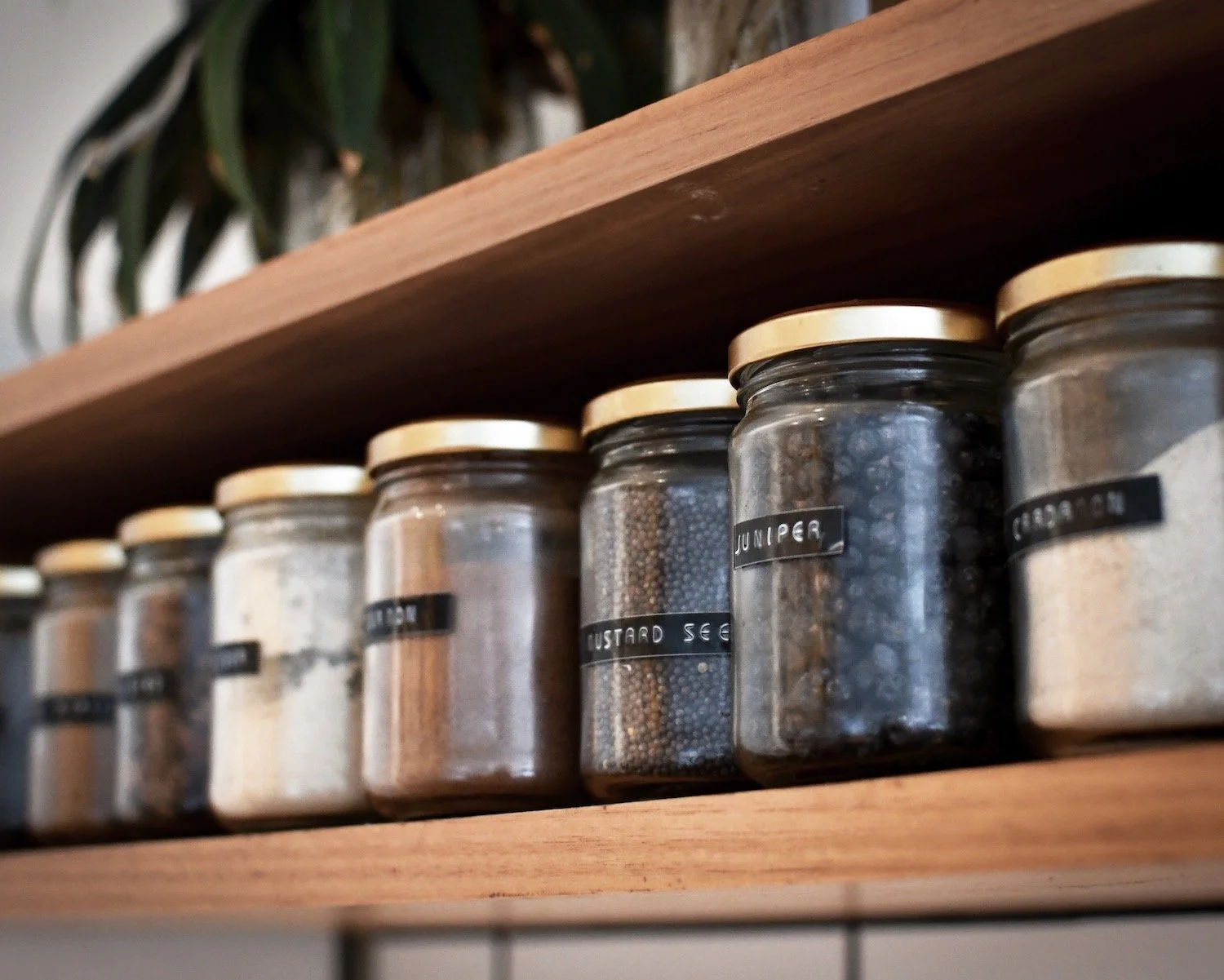Herbs For Better Digestion
A guide to culinary herbs that heal.
There’s been quite a lot of talk in recent years about leaky gut and what we should do about it. It’s become a catch all phrase for what’s causing an ever growing number of digestive woes afflicting the modern human.
The movement has been towards eliminating culprit foods that contain gut irritating compounds like gluten, lactose, lectins, or fermentable starches. The checklist for what to eliminate has become rather exhaustive, and quite honestly it’s gotten a bit out of hand.
I think at this point we need a shift in our thinking.
The question we should be asking is why have we lost the ability to digest so many foods? The fixation on what not to eat is blinding us to the truth. Avoiding foods that are hard to digest, while it may ameliorate symptoms in the short-term, will never address the underlying problem in the long run.
And the underlying problem is a weakened digestive system.
How I healed my gut.
I began my healing journey as a teenager because I was in total digestive distress and could not get any help through the medical system. Of course I tried every elimination diet under the sun. And they would help for a while. But eventually I couldn’t live with the restrictions, it was far too complicated, and I would end up feeling malnourished.
So I started studying the ancient medical systems of China and India, and discovered they had an in-depth method for using foods and herbs to restore gut health. They utilized the five essential flavours to strengthen and rebuild the digestive ‘fire’.
This has been an invaluable and lifelong tool which has helped me vanquish my chronic digestive issues. Working with the five flavours is one of the defining features of how I eat to this day. I am proud to say no one comes to my home for dinner and leaves feeling bloated and gassy.
And when I go to a restaurant and the waiter asks me if I have any food restrictions, I say ‘no I eat everything, thank you!’.
The lesson learned.
Humans have evolved to be omnivorous eaters with a highly adaptable and diverse gut microbiome. The fact that we produce enzymes to break down food from every food group is a huge evolutionary advantage we have over other mammals.
While I certainly understand the movement away from highly processed and denatured foods, I find it concerning that so called gut health experts now advise against natural whole foods like onions, lentils, and broccoli.
Broccoli is not the problem folks. Far from it.
The real problem is a digestion system that can no longer do what it once did. Of course it’s the foods we choose to eat, but it’s also how we prepare those foods.
And this is where the power of herbal medicine comes in.
What herbs can do.
Since time immemorial herbs have played a central role in traditional diets in the form of medicinal beverages and culinary seasonings. Specifically because they promote digestion and protect against food-born disease.
Herbs are a concentrated source of natural healing compounds that can relax the enteric nervous system, stimulate the production of enzymes, and balance the gut microbiome.
This knowledge is implicit in traditional recipes from around the world. But we have migrated away from this old world kitchen wisdom and instead adopted a modern industrialized diet that almost seems aimed at destroying our microbiome balance.
Kitchen medicine.
Culinary herbs do so much more than season a dish. They are medicines rich in volatile oils that contain powerful anti-microbial, anti-inflammatory, and anti-oxidant compounds.
Meals prepared with an abundance of herbs and spices, protect against disease promoting bacteria, parasites and fungi. When we talk about the gut microbiome, we tend to only focus on probiotic foods like yogurt or sauerkraut.
We rarely, if ever, talk about naturally occurring antibiotics. But they are equally important in maintaining a balanced microbiome.
Traditional diets feed the good bacteria with fiber and fermented dishes, but they also inhibit bad bacteria by using anti-microbial herbs and spices like oregano, turmeric and garlic, in great abundance. It’s a little known secret to health and longevity.
4 gut healing flavours.
Normally we consider the taste of food only in terms of satisfaction, rarely connecting taste with a therapeutic value. Traditional medical systems emphasize four herbal flavours for rebuilding a healthy digestive system - aromatic, pungent, sour, and bitter.
These taste profiles tend to be lacking or absent in the modern diet, which is dominated by sweet and salty. In excess, the sweet and salty flavour profile encourages a lazy, sluggish digestive response, especially when combined with high fat or high carb meals.
Aromatic.
Aromatic herbs have a combined stimulating and relaxing effect on the on the digestive tract. They gently promote the wave-like motion of the digestive tract, called peristalsis. At the same time they relax the nerves, which control smooth muscle movement from the mouth to the intestines.
Preparing foods with aromatic herbs helps to keep everything moving along smoothly and will minimize bloating, gas, griping and ferment.
The aromatic herbs which are the most therapeutic for gas and bloating are fennel, anise, and peppermint. But can also be achieved with the regular and liberal use of dill, cilantro, basil, thyme, or oregano.
Pungent.
Pungent herbs are typically more warming in nature. They promote blood flow and circulation, and dry out excessive fluids lingering in the digestive tract. They balance out raw, cold foods like salads, dairy, or smoothies. And they also lighten up dishes that contain a lot of starch or carbohydrates.
The diffusing warmth of pungent herbs prevent foods from feeling heavy in our system. They include cinnamon, ginger, cayenne, paprika, cumin, hot peppers, garlic, onions.
Sour.
The sour flavour is particularly helpful at the beginning of a meal, as it wakes up the appetite and stimulates the release of stomach acid, as well as digestive enzymes. Traditionally the sour flavour is incorporated into meals as pickled, cultured, or fermented foods that serve as an appetizing accoutrement.
Adding the sour flavour in the form of fresh citrus juice to nutritionally dense greens improves the assimilation of vitamins and minerals. And cooking poultry and meat with vinegar, softens the flesh and makes it easier for our digestive system to break down and digest.
Plant and herbal sources of the sour flavour include lemon, lime, pomegranate, cranberry, apple cider vinegar, sauerkraut, fermented vegetables, pickled vegetables.
Bitter.
Bitter is the most under appreciated herbal flavour but possibly the most therapeutic. Bitter greens, herbal bitters and bitter aperitifs taken at the beginning of a meal powerfully stimulate digestion secretions including saliva, stomach acid, enzymes, and bile.
Bitter herbs specifically aid in the digestion of high fat and high protein foods. They stimulate enzymes that promote liver detoxification and improve bowel transit time. They have a tonic effect on the digestive nerves, and can help revitalize a chronically sluggish digestive system.
Bitter herbs and greens include dandelion, artichoke, turmeric, celery, parsley, rapini, endive, escarole, radicchio, frisée (Chicory), citrus peel, and traditional remedies like a herbal bitters tincture.






